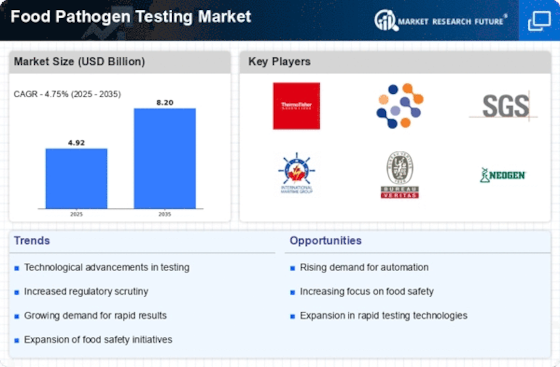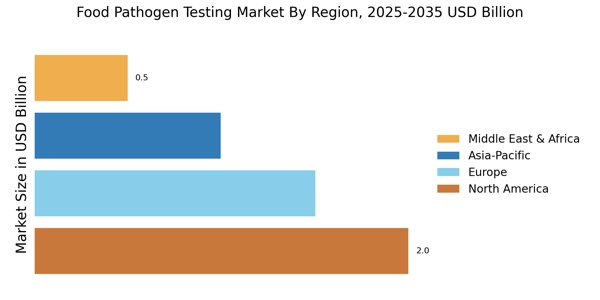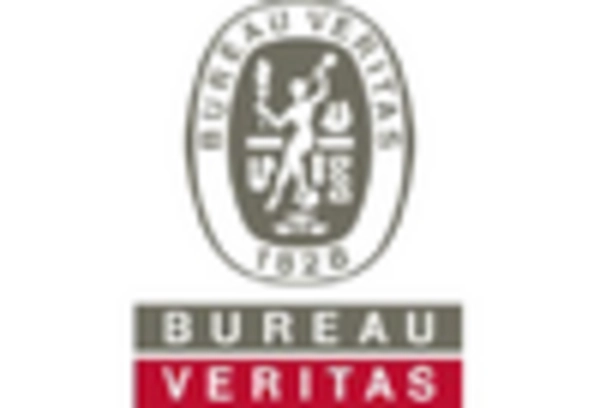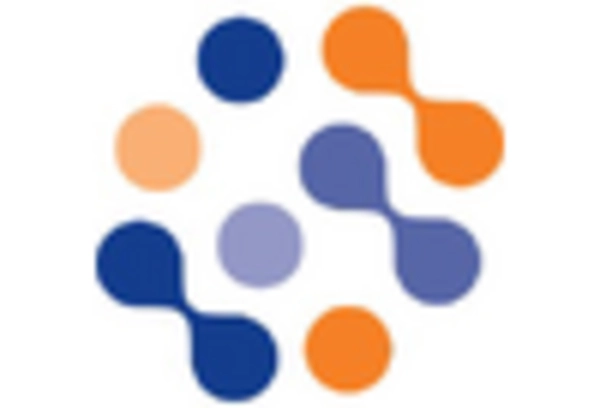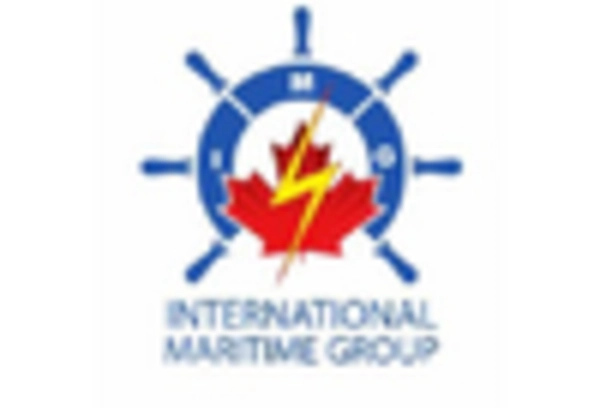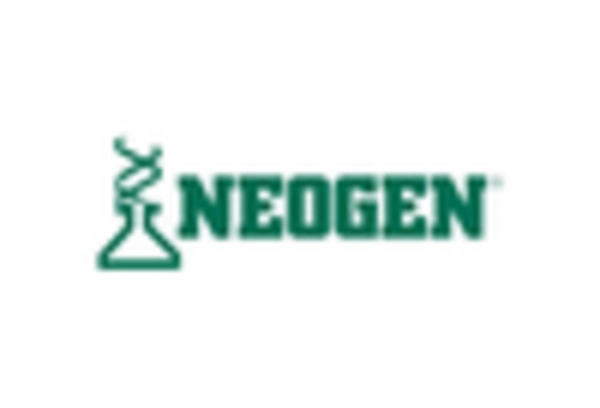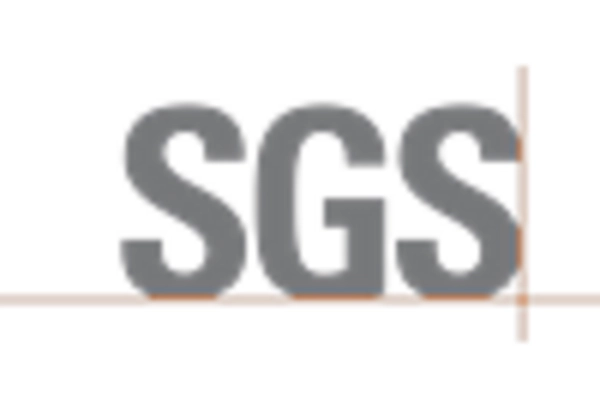Growing Consumer Awareness
Consumer awareness regarding food safety is on the rise, significantly impacting the food pathogen testing Market. As individuals become more informed about the risks associated with foodborne pathogens, they are demanding higher safety standards from food producers. This shift in consumer behavior is prompting manufacturers to invest in comprehensive testing programs to ensure the safety and quality of their products. Surveys indicate that over 70% of consumers are willing to pay a premium for food products that are certified safe from pathogens. This trend is likely to drive the market forward, as companies strive to meet consumer expectations and enhance their brand reputation. The increasing focus on transparency in food sourcing and production further amplifies the need for effective pathogen testing.
Regulatory Pressures and Compliance
The Food Pathogen Testing Market is heavily influenced by stringent regulatory frameworks aimed at ensuring food safety. Governments and regulatory bodies are implementing rigorous standards for pathogen testing in food products, which compels manufacturers to adopt advanced testing methods. Compliance with these regulations is not only essential for market access but also for maintaining consumer trust. The increasing number of foodborne illness outbreaks has led to heightened scrutiny and enforcement of testing protocols. Consequently, the market is witnessing a surge in demand for reliable testing solutions that meet regulatory requirements. It is estimated that the market could reach a valuation of USD 5 billion by 2027, driven by the need for compliance and the prevention of foodborne diseases.
Rising Incidence of Foodborne Illnesses
The Food Pathogen Testing Market is significantly impacted by the rising incidence of foodborne illnesses worldwide. Reports indicate that millions of cases of foodborne diseases occur annually, leading to severe health consequences and economic losses. This alarming trend has prompted governments and health organizations to prioritize food safety initiatives, thereby increasing the demand for pathogen testing. The economic burden associated with foodborne illnesses is estimated to exceed USD 15 billion annually, highlighting the critical need for effective testing solutions. As awareness of these issues grows, food manufacturers are compelled to implement rigorous testing protocols to mitigate risks and protect public health. This increasing focus on prevention is likely to drive market growth in the coming years.
Technological Advancements in Testing Methods
The Food Pathogen Testing Market is experiencing a notable transformation due to rapid technological advancements. Innovations such as PCR (Polymerase Chain Reaction) and next-generation sequencing are enhancing the speed and accuracy of pathogen detection. These methods allow for the identification of pathogens in food samples within hours, significantly reducing the time required for testing. Furthermore, the integration of automation and artificial intelligence in testing processes is streamlining operations, thereby increasing efficiency. As a result, the market is projected to grow at a compound annual growth rate (CAGR) of approximately 7% over the next five years. This growth is driven by the need for faster testing solutions to meet the demands of food safety regulations and consumer expectations.
Expansion of Food Processing and Distribution Networks
The Food Pathogen Testing Market is also influenced by the expansion of food processing and distribution networks. As the food supply chain becomes more complex, the potential for contamination increases, necessitating robust testing measures. The globalization of food trade has led to a greater variety of food products entering markets, which in turn raises the stakes for food safety. Companies are increasingly recognizing the importance of pathogen testing as a critical component of their quality assurance processes. The market is expected to benefit from this trend, as businesses invest in advanced testing technologies to ensure the safety of their products throughout the supply chain. This expansion is projected to contribute to a market growth rate of approximately 6% over the next few years.


